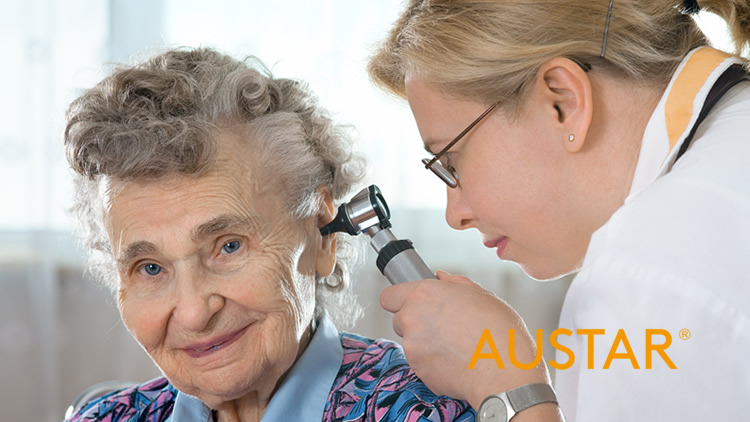- Home
- Hearing Loss
- Audiology
7 Potential Hazards for the Hearing Impaired Elderly
2022-11-29Hearing loss in the elderly has many potential harms besides being unable to hear or understand clearly. For example, social barriers, becoming sensitive, withdrawn, and inducing psychological problems such as depression. Even unresponsiveness increases the risk of accidental falls or dementia in the elderly.

1. Prone to accidental injury:
When walking on the road, there is an obstacle in front of you. The elderly cannot hear the reminders of others, and they are prone to fall; they cannot hear the horns of cars and electric vehicles behind them, and they are prone to traffic accidents; ", prone to burns, etc.
2. Decreased communication skills:
The hearing loss of the elderly is often accompanied by a decline in speech recognition rate, and language comprehension becomes more and more difficult. It is impolite for others to speak softly, and it is impolite to shout loudly. Gradually, he is unwilling to talk to others, lacks social interaction, and further declines in communication skills.
3. Emotional disorders are prone to occur:
Some elderly people with sensitive hearts and strong self-esteem have an inferiority complex because of their own hearing loss, and they are afraid of being misunderstood or hurt and close themselves up. Personality gradually becomes withdrawn, not interested in things around, and even psychological problems such as suspicion, jealousy, anxiety, and depression appear.
4. Sleep disorders:
About 40% of the elderly with hearing loss will be accompanied by tinnitus, mostly persistent high-pitched tinnitus. Even if the environment is silent, the ears are like cicadas humming, which does not stop for a moment, which makes people irritable and affects the quality of sleep in severe cases. Tinnitus and insomnia promote each other, and a vicious circle can easily occur.
5. Prone to falls:
About 20% of the elderly with hearing loss are accompanied by balance disorders. Hearing loss can also easily lead to problems in the elderly's judgment of orientation. Elderly people focus most of their attention on listening to sounds during activities, resulting in decreased balance function, unstable gait, and increased chances of falling. Hearing loss is itself an independent risk factor for falls.
6. Prone to weakness:
Elderly people with hearing loss are prone to social isolation, and usually have less active outdoor activities and physical activities, resulting in insufficient exercise, muscle attenuation, and decreased immune function. The above reasons make the elderly prone to weakness.
7. Susceptible to dementia:
Hearing loss reduces the cognitive stimuli received by the elderly and leads to cognitive decline. Analysis of studies has shown that hearing loss is associated with dementia; it has also been reported that people with hearing loss have three times the risk of developing dementia than elderly people with normal hearing. If the risk factor of hearing loss is completely eliminated in middle age, the prevalence of dementia in later life can be reduced by 8.2%.
Advice for the Hearing Impaired
Hearing loss is mostly slow and gradual, and it is not easy to be noticed in the early stage. Such as "can't hear clearly" sometimes, "you can still hear when you speak loudly", etc., only through professional hearing examination, detailed hearing test and evaluation, can we understand that the hearing problem has caused great impact and damage to the patient. The longer the hearing loss lasts, the worse the hearing loss will be, and the poorer the speech recognition ability will be. Early intervention, early treatment, and early rehabilitation will achieve good hearing rehabilitation results. Therefore, the later you wear hearing aids and other hearing aids, the more money you will spend and the worse the recovery effect will be.
AUSTAR is a professional hearing aid manufacturer and supplier with nearly 20 years of experience, we provide one-stop hearing solutions for the hearing impaired. If you are interested in hearing aids please contact us. Behind-the-ear and in-the-ear hearing aids, popular OTC, rechargeable and Bluetooth hearing aids meet the needs of different hearing-impaired people.
Latest
Audiology













All 0 comments